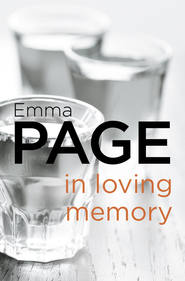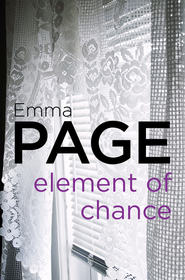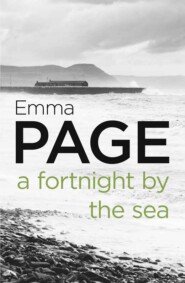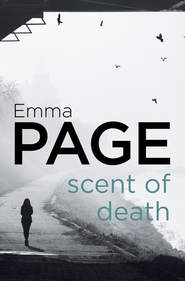По всем вопросам обращайтесь на: info@litportal.ru
(©) 2003-2024.
✖
Final Moments
Автор
Год написания книги
2018
Настройки чтения
Размер шрифта
Высота строк
Поля
The door was opened by one of the teachers. ‘I’ve just rung Foxwell Cottage again,’ she told Roy. ‘There’s still no answer. The children tell me their mother went away for the weekend, they’ve been staying with you.’
Roy nodded. ‘I expect something cropped up to make her late setting off for home.’
The teacher frowned. ‘I would have thought she’d have rung to let us know. She’s never missed picking them up before, she’s always very punctual.’
‘If her car broke down on the road,’ Jane put in, ‘she might not have been able to get to a phone.’
‘Yes, I suppose that could be it.’ The teacher led the way into the hall where Simon and Katie sat waiting. They had a subdued, anxious air, only partly dispelled by the sight of their father and stepmother. They got to their feet and stood glancing from one face to the other.
‘Isn’t Mummy coming?’ Katie asked. She went up to Jane and slipped a hand into hers.
‘I expect she’s been delayed,’ Roy said easily.
In the car Jane chatted to the children about their day at school. They answered briefly and flatly. Roy scarcely spoke and after a few minutes all four lapsed into silence.
They reached the edge of town and Roy headed the car towards Foxwell Common. It was a fine, sunny afternoon with a little thin, high cloud. The landscape looked serene and peaceful. Along the hedgerows the hawthorns were in full snowy blossom, the common was bright with yellow gorse, the grass thickly studded with golden dandelions.
The hamlet consisted of half a dozen dwellings. Roy drove past a black and white thatched cottage owned by a widow who used the parlour as a little general store, past a farmhouse, a pair of old dwellings modernized for letting out to holidaymakers but empty now, so early in the season. He turned the car in through the open gates of Foxwell Cottage.
‘It’s all right! Mummy’s back!’ Katie cried out on a note of relief. She had caught sight of her mother’s car over on the right, on the far side of the house.
Simon frowned. ‘Why didn’t she drive straight to school to pick us up?’ No one answered.
Roy came to a halt and switched off the engine. He opened his door and got out. Jane and the children made to follow but he stooped and put his head in at the rear window. ‘Stay where you are,’ he commanded the children. Jane’s head came sharply round and he flashed her a look. ‘You stay with them.’ She said nothing. All three sat upright and alert, looking out at him in silence.
He walked over the gravel to the front door and pressed the bell; it rang sharp and clear. There was no response. He glanced about. The cottage windows were open, upstairs and down. He tried the front door. It yielded to his touch and he went inside. On the floor of the hall lay a couple of envelopes, a picture postcard, a scatter of leaflets. He went in and out of the ground-floor rooms, calling out Venetia’s name. There was no stir of movement, no whisper of sound. Nothing out of order in the sitting room or dining room.
He went upstairs, glanced in at the children’s rooms, the bathroom. In Venetia’s bedroom an overnight bag and vanity case stood packed at the foot of the bed. A summer dress, crisply laundered, had been carefully laid out on the coverlet. A shoulder-bag lay on top of the chest of drawers.
By now he had given up calling out. He went down to the kitchen. On the table in the centre of the room was a tray holding used tea-things, an open biscuit tin beside it.
The back door was propped open with an old firedog. He went out on to the paved terrace. A garden table stood beside a canvas sunlounger; on the table a couple of beakers and a jug that had held lemonade. A folded newspaper bearing Friday’s date stuck out from behind the cushions of the lounger.
He stood for a moment with his head back and his eyes closed. The only sounds were the twittering of birds and the distant hum of a mechanical saw. He went round the cottage to where Venetia’s car stood with its back to him, its front windows wound down. The boot wasn’t locked. He glanced inside; it was empty except for the spare tyre and a bag of tools.
He went round to the nearside front door of the car, opened it and stooped inside; the keys were in the ignition. On the rear window ledge lay some children’s comics and a rag doll. He knelt on the front seat, leaned over and glanced down–and there she was. Jammed into the space between the front and rear seats, facing him, her eyes closed. She lay on her back, in shirt and jeans, her knees drawn up. Her hair fell in disordered curls over her forehead. Her face was contused and contorted, with livid bruises, her lips swollen, her mouth wide open. Something had been rammed down her throat, some patterned stuff, brown and silky.
He remained staring down at her for several seconds, then he reached over and laid the back of his hand against her puffy, discoloured cheek. He drew a long quavering breath and got out of the car. He staggered over to the side of the cottage and stood leaning against the wall, his head in his hands. After a minute or two he roused himself and walked round to where Jane and the children still sat silent in the car.
They saw his face as he approached, white and shaken, his trembling, uncertain gait. They gazed dumbly out at him. He didn’t glance at the children but put his head in at the front window and without looking at Jane said in a low, unsteady voice, ‘You must take the children home at once and stay there with them.’ He put a hand up to his eyes. ‘There’s been an accident. I must ring the police.’
Jane said nothing but gave a single answering nod. She slid into the driver’s seat and switched on the engine. In the back the children had caught something of what he’d said. They sat in tremulous silence, their faces puzzled and uneasy.
Roy stepped back and watched as Jane turned the car and drove out through the gates, then he went slowly back to the cottage. All at once he began to shake violently. He couldn’t control the fierce tremors, he could scarcely discipline his fingers sufficiently to open the front door.
The phone stood on a small table in the sitting room. As he approached it the tremors increased. The receiver rattled against its rest as he tried to pick it up. Suddenly he began to cry. It was some minutes before he managed to dial the number and all the time the tears ran down his face.
CHAPTER 2 (#ulink_d32adece-c3e6-5b66-a658-9d80c755ef9d)
Evening sunlight slanted in through the window of the kitchen at Foxwell Cottage. Detective Chief Inspector Kelsey stood leaning against the dresser. A big, solidly built man with a large face and craggy features; a freckled skin and shrewd green eyes, a head of thickly-springing carroty hair. At the table in the middle of the room Roy Franklin sat leaning forward, his arms crossed on the table top, his head resting on his arms.
Venetia’s body had gone off to the mortuary. Inside the cottage, upstairs and down, in the garden and on the common, men were busy searching, sifting, probing, examining.
Inquiries had been made at the neighbouring dwellings but no one had seen or heard anything unusual over the weekend, no one had noticed any car turning in through the cottage gates, no one had been seen hanging about the cottage or the common, behaving in any way suspiciously. The common was of no great size and was full of gorse bushes. As a consequence it was not in favour as a picnic spot or playground. Venetia had never been on close terms with any of the neighbours. Her acquaintance with them had always been pleasant enough but had never progressed beyond an exchange of minor civilities when their paths crossed.
Among the leaflets lying in the front hall of the cottage was one advertising a bazaar at a Cannonbridge church hall. A phone call to the organizers of the bazaar supplied the information that the leaflets had been delivered by Dorothy Pickard. A constable had been despatched to talk to Dorothy.
He had returned to say that she had pushed the leaflets in through the door of Foxwell Cottage at about ten o’clock on Saturday morning. She had seen no one about the place, had heard no sound from inside the dwelling. The cottage gates were standing open, fastened back, and she had left them as she had found them. She remembered noticing Mrs Franklin’s car parked at the far side of the cottage but she hadn’t gone near it.
In addition to delivering leaflets on Saturday Dorothy was also selling raffle tickets in aid of a charity. Mrs Franklin had often bought tickets from her so she rang the bell in order to speak to her. When there was no reply she walked round to the back door which stood propped open. She saw the sunlounger on the terrace, the table with the used jug and beakers. From this and from the fact that all the windows were open she judged that Mrs Franklin must be somewhere on the premises. She knocked loudly at the back door and when there was no answer she put her head in and called out, again without success. She looked down the garden but saw no one. She concluded that Mrs Franklin might have gone up to the little shop or walked across the fields to the farm for some eggs.
By the time the police arrived at the cottage Roy Franklin had drunk a couple of stiff whiskies from the sideboard and had managed to get some kind of grip on himself. He had immediately suggested to the police that the murder was clearly the work of a criminal psychopath, possibly someone from a local psychiatric institution–there were two in the area. The circumstances of the crime had at once prompted the same thought in the Chief Inspector. Both institutions were contacted by phone and officers were sent to begin inquiries.
Venetia had been wearing a certain amount of jewellery: a gold wristwatch, gold stud earrings, a gold chain round her neck. She also wore three rings, a diamond engagement ring, a wedding ring and the sapphire and diamond ring Franklin had given her after the birth of Simon. No attempt appeared to have been made to remove any of these items.
Nor, apparently, had there been any attempt to enter the cottage. There was no sign of disturbance nor, as far as Franklin could tell them, did anything appear to be missing. The cottage was well furnished and there were several ornaments and other items of value that could easily have been snatched up and thrust into a pocket. On the dressing table in Venetia’s bedroom was a jewel box containing several pieces of fair value. Inside the shoulder-bag on the chest of drawers was a wallet holding a sizeable sum of money, a chequebook and credit cards. Nothing apparently touched, nothing taken.
One of the buttons was missing from the shirt Venetia wore. The shirt was of fine cotton, striped in blue and white; the buttons were fancy, dark blue buttons of good quality, many-faceted. The missing button had been ripped from the shirt, tearing out a small piece of material. The search had so far failed to turn up the button.
According to Franklin he had called for the children, as arranged, at five o’clock on Friday afternoon. Venetia had given the children their tea on the terrace, as she often did in fine weather. He had exchanged a few words with her but they hadn’t stood about chatting; he knew that she was going away for the weekend. She hadn’t mentioned at what time she intended setting off but he had the impression that it would be as soon as she had tidied up and changed out of her shirt and jeans.
It had been agreed that he would take the children to school on Monday morning; Venetia would be back from her trip in time to pick them up at the school on Monday afternoon. This wasn’t the first time they had made such an arrangement.
When the children finished their tea they ran into the cottage to wash their hands and faces. He went inside and brought out their cases. Venetia fetched a tray from the kitchen and began to clear the tea-things. When the children came out they said goodbye to her and got into the car. He immediately drove off, leaving the gates open, fastened back, as they had been when he arrived. That was the last time he had seen Venetia alive. He had had no further contact of any kind with her.
He didn’t take the children straight to his flat. His wife Jane was at work and wouldn’t be in till around six. Jane had never met Venetia; she had never wanted to and the necessity had never arisen. It had always been he who had picked up the children. It had been settled between himself and Jane that he was to take the children to the fair on the common by the railway, bringing them home at about seven, by which time Jane would have prepared supper. At the fairground he had seen various people he knew and there were other children from Sunnycroft School there with their mothers. He had spoken briefly to one of the mothers who was a customer at his shop.
At seven o’clock he had duly taken the children back to the flat. Jane was there and they all had supper and then watched television. The children went to bed at about nine and he spent the next hour or so in his workshop. He and Jane went to bed around half past ten. On Saturday morning he busied himself as usual in the shop and workshop. Simon spent the morning with him. Katie went out shopping with Jane and afterwards stayed with her while she attended to the housework and cooking.
On Saturday afternoon he left his assistant and one of the repairmen in charge while he and Jane took the children to a nearby safari park. Again they saw and spoke to other children and parents known to them from school. They returned to the flat at about eight. On Sunday they all four spent the day in a riverside town fifteen miles away. They took a boat out on the river, ate a picnic lunch and tea on the river bank, returning home around half past seven.
It seemed highly probable that Venetia had died very shortly after Roy drove away from the cottage with the children on Friday afternoon and the preliminary medical examination tended to support this impression. A short distance from the cottage, on the common, they had found a spot on a small rise, beneath the overhanging branches of a hawthorn, where the grass had recently been flattened. Someone standing under the branches could look down unobserved on the cottage and garden.
Chief Inspector Kelsey had asked Franklin if he had ever before seen the silky brown scarf that had been stuffed down Venetia’s throat but Franklin had shaken his head.
The Chief Inspector stood now looking down at Franklin as he sat at the table with his head on his arms. ‘Have you no idea where your wife–your ex-wife–might have been intending to spend the weekend?’ he asked suddenly.
Franklin raised his head and sat slowly up. His face was flushed, he had an air of immense fatigue. ‘No idea at all. She never used to say where she was going when I went to collect the children. She never even used to tell the children where she was going.’ Making sure they would be in no position to reveal information about her private life, Kelsey reflected, however skilfully Roy or Jane might try to pump them.
‘Can you tell me about any men friends she may have had?’ he asked. ‘Do you know if she was thinking of marrying again?’
Again Franklin shook his head. ‘I’m sure she did have men friends but she never mentioned them to me. I wouldn’t have expected her to. She certainly never said anything about marrying again.’
‘Did you ever make any attempt to find out about men friends?’
He frowned. ‘I certainly did not. It was none of my business.’ The divorce had come about because of his own infidelity, not that of his wife. He had never been jealous of her, had never been given cause to be jealous during their marriage, he didn’t consider himself a jealous man.
‘Would you have objected to her marrying again?’











